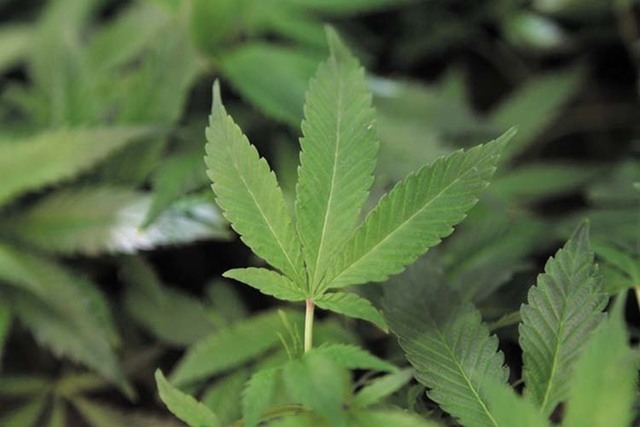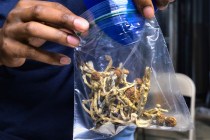Panel hears proposals to fix Nevada’s new medical marijuana law
CARSON CITY — Issues raised at the first meeting of a new panel overseeing Nevada’s medical marijuana program Wednesday ranged from employment protections for patients to ensuring that patients who grow their own will be allowed to continue to do so.
Another concern discussed by the Advisory Commission on the Administration of Justice’s Subcommittee on the Medical Use of Marijuana was Nevada’s current laws regarding driving under the influence of marijuana, which critics say is too restrictive and not reflective of who is an impaired driver.
Nevada’s nascent medical marijuana dispensary efforts were the subject of a wide-ranging discussion by the 20-member panel charged with overseeing and recommending improvements to the program. The subcommittee got to work even though the first dispensary won’t likely open until late this year or even into 2015, right before the next legislative session opens.
Raymond Fletcher, who moved to Las Vegas from Indiana so he could use medical marijuana to alleviate pain from a near-fatal car accident, told the panel that patients face challenges to participating in state job programs that mandate no illegal drug use. Marijuana remains illegal under federal rules despite the medical marijuana dispensary program approved by the 2013 Legislature.
“We need to make sure those legitimate patients do not get kicked out of state programs,” he said.
Assemblyman Paul Aizley, D-Las Vegas, has requested a bill for the 2015 session to prohibit denial of benefits to a state or local employee who holds a medical marijuana card and uses the product.
Fletcher also asked that patients be allowed to grow their own product because of the high cost of buying it from a dispensary, a comment that was echoed by others.
“Especially for those on fixed incomes,” he said. “We want to make sure there is safe access to the medicine and not make people homeless in the process.”
Vicki Higgins of Wellness Education Cannabis Advocates of Nevada asked the subcommittee not to put a limit on marijuana cultivation, at least initially. There are no limits yet and they could only be imposed after a public hearing process conducted by the state.
With Nevada’s dispensary program allowing reciprocity with other states that authorize medical marijuana, the demand will be huge, she said.
People will come to Nevada for their vacations in part because they know they can get their medicine here without fear of legal consequences, Higgins said.
There were 5,859 medical marijuana cardholders as of the end of May, with 4,196 of those in Clark County, according to the state Division of Public and Behavioral Health.
State Sen. Tick Segerblom, D-Las Vegas, the author of the 2013 law allowing the establishment of medical marijuana dispensaries, said the panel will work on developing a bill for the 2015 session to fix any issues or concerns that arise as the program is rolled out over the next several months.
The establishment of the dispensaries and grow houses to supply the product is still in the licensing process, however. There is no set date on when dispensaries will begin operating.
Regulatory approvals are required both at the state and local government levels.
The state is scheduled to accept applications from Aug. 5 to Aug. 18.
The Legislature in 2013 overwhelmingly approved Assembly Bill 374 authorizing 66 dispensaries to operate in Nevada, 40 of them in Clark County.
Segerblom said he would like to see the Legislature also tackle the driving-under-the-influence issue in a separate bill.
The panel has four state lawmakers and 16 appointees representing the legal community, law enforcement and local government, among other interests.
Las Vegas attorney and panel member John Watkins said the driving-under-the-influence issue is a top priority.
Watkins has argued that scientific evidence shows no relationship between Nevada’s standard and impairment while driving. A person who smokes pot can be perfectly straight the following day but still fail the test by a wide margin.
Nevada’s standard is whether a driver’s blood contains 2 nanograms per milliliter of marijuana or 5 nanograms per milliliter of marijuana metabolite. There is a separate measurement for urine.
Watkins defended motorist Jessica Williams, who in a March 2000 struck and killed six teenagers collecting trash in the median of Interstate 15.
A jury determined that Williams was not impaired at the time of her crash, but convicted her of driving with prohibited substances in her blood. She is serving a prison sentence of 18 to 48 years.
Contact Capital Bureau reporter Sean Whaley at swhaley@reviewjournal.com or 775-687-3900. Find him on Twitter: @seanw801.






















